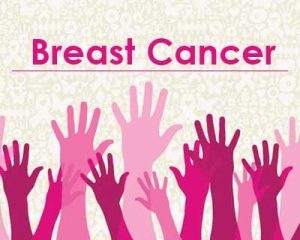- Home
- Editorial
- News
- Practice Guidelines
- Anesthesiology Guidelines
- Cancer Guidelines
- Cardiac Sciences Guidelines
- Critical Care Guidelines
- Dentistry Guidelines
- Dermatology Guidelines
- Diabetes and Endo Guidelines
- Diagnostics Guidelines
- ENT Guidelines
- Featured Practice Guidelines
- Gastroenterology Guidelines
- Geriatrics Guidelines
- Medicine Guidelines
- Nephrology Guidelines
- Neurosciences Guidelines
- Obs and Gynae Guidelines
- Ophthalmology Guidelines
- Orthopaedics Guidelines
- Paediatrics Guidelines
- Psychiatry Guidelines
- Pulmonology Guidelines
- Radiology Guidelines
- Surgery Guidelines
- Urology Guidelines
USPSTF releases latest guidelines for BRCA gene mutation-related cancers

The U.S. Preventive Services Task Force (USPSTF) has released its latest guidelines for BRCA gene mutation-related cancers.It recommends that primary care clinicians assess women with elevated risk for BRCA-related cancer with a brief familial risk assessment tool.
These cancers make up about 5% to 10% of breast cancers and a higher share of ovarian cancers.
“The USPSTF recommends that primary care clinicians assess women with a personal or family history of breast, ovarian, tubal, or peritoneal cancer or who have an ancestry associated with BRCA1/2 gene mutations with an appropriate brief familial risk assessment tool,” wrote the panel in the journal JAMA. “Women with a positive result on the risk assessment tool should receive genetic counseling and, if indicated after counseling, genetic testing.”
Mutations in the BRCA1 and BRCA2 genes are associated with increased risks for breast, ovarian, and other cancers, but only certain women stand to benefit from genetic testing, according to updated recommendations from the U.S. Preventive Services Task Force (USPSTF).
“Whether or not the harms of risk assessment, counseling, testing, and interventions outweigh the benefits depends on a woman’s individual risk profile and family history,” Dr. Douglas K. Owens, Task Force member from Stanford University in California, told Reuters Health by email.
That is why it is important for women who are concerned about their risk of having a BRCA mutation to discuss benefits and harms with their doctor,” he added.
Owens and his colleagues on the government-backed USPSTF reviewed all the available evidence before updating the panel’s recommendations on risk assessment, genetic counseling, and genetic testing for BRCA-related cancer. The updated documents appear in the Journal of the American Medical Association.
“Each step in the process can be complex,” Owen said.
As a first step, the USPSTF says, women with a personal or family history of breast, ovarian, fallopian tube, or peritoneal (the lining of the abdominal cavity) cancer and women whose ethnic background is associated with an increased risk of BRCA mutations should be evaluated with one of several risk assessment tools. These tools accurately assess the likelihood of carrying a harmful mutation in one of these genes.
If the risk assessment suggests an increased likelihood of carrying a harmful BRCA mutation, the woman should have genetic counseling, and possibly, genetic testing.
“Sometimes it makes sense for a woman to only get an assessment and undergo counseling, but not genetic testing,” Owen said. “It is also important to note that test results are complex and can’t always definitively tell a woman if she has a potentially harmful mutation that will lead to cancer.”
The USPSTF recommends genetic testing if a woman’s history suggests a potential for inherited cancer risk, but even then, only if the test results will help her make decisions about further evaluation and treatment.
Possible interventions could include more intensive screening for BRCA-related cancers, medications that might reduce the risk for developing these cancers, and surgeries that further reduce risk (by removing breasts, ovaries and fallopian tubes).
Dr. Susan Domchek from Basser Center for BRCA at the University of Pennsylvania in Philadelphia, who co-authored an editorial published with the recommendation, told Reuters Health by email, “Many individuals at high risk of having a BRCA1/2 mutation are not tested. Oncologists, primary care doctors, gynecologists, other health care providers, and patients should all be aware of the options for genetic testing. At the same time, we should all strive to reduce barriers and ensure equitable access to genetic testing.”
Dr. Larissa A. Korde from National Cancer Institute, Rockville, Maryland, who co-authored another related editorial, told Reuters Health, also by email, “I think awareness of a cancer family history is the key for both patients and physicians,” Dr. Korde said. “Knowing which cancers are associated with BRCA mutation, in both men and women, will lead to the successful identification of those who should be tested.”
BRCA mutationsbreast cancerDr Larissa A KordeDr Susan DomchekJournal of the American Medical Association.ovarian cancerPhiladelphiaU.S. Preventive Services Task ForceUniversity of PennsylvaniaUSPSTFUSPSTF guidelines
Source : JAMANext Story
NO DATA FOUND

Disclaimer: This site is primarily intended for healthcare professionals. Any content/information on this website does not replace the advice of medical and/or health professionals and should not be construed as medical/diagnostic advice/endorsement or prescription. Use of this site is subject to our terms of use, privacy policy, advertisement policy. © 2020 Minerva Medical Treatment Pvt Ltd